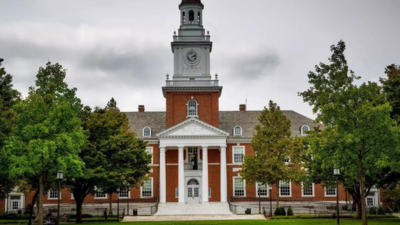Why Harvard has a strong chance to prevail over Trump in immigration lawsuit challenging student visa rules

Harvard University is engaged in a high-profile legal battle with the Trump administration over its ability to enroll international students, a dispute that has significant implications for US higher education. The Department of Homeland Security (DHS) revoked Harvard’s Student and Exchange Visitor Program (SEVP) certification, effectively barring the university from admitting international students. This drastic move came after Harvard refused to comply with federal demands to relinquish control over its admissions, hiring, and governance policies. However, Harvard responded by filing a lawsuit challenging the revocation, and a US District Court granted a temporary restraining order, blocking DHS’s decision for now.The case revolves around the Trump administration’s broader efforts to tighten immigration controls on foreign students, including plans to eliminate Optional Practical Training (OPT) and STEM OPT programs that allow graduates to work in the US. Harvard, which has about 25% of its student body consisting of international students, argues that DHS’s actions are retaliatory and violate federal regulations designed to ensure due process. Legal experts and Harvard’s complaint point to significant procedural missteps by DHS, giving the university a strong chance to succeed in court.Procedural errors and lack of due process in DHS actionAt the heart of Harvard’s lawsuit is the claim that DHS did not follow its own rules when revoking the university’s SEVP certification. According to the complaint, the department failed to issue a Notice of Intent to Withdraw (NOIW) or provide the opportunity for appeal as required under 8 C.F.R. § 214.4(b). Harvard’s legal team notes that the regulations only allow DHS to terminate a school’s certification through formal withdrawal proceedings or if the school voluntarily withdraws, neither of which occurred in this case.Harvard produced thousands of records in response to DHS’s demands, including detailed information on international students’ academic status and disciplinary actions. However, DHS deemed Harvard’s response insufficient without citing any specific violations or regulations, as reported by the Forbes. The department’s May 22 letter also demanded far-reaching data, such as all audio or video footage of protests involving international students on campus over the past five years — a request that exceeds the scope of typical recordkeeping requirements.Jonathan Grode, a legal expert quoted by the Forbes, said the complaint “is well organized, filed swiftly and lists ten compelling counts in seeking relief.” He added that the administration’s failure to follow proper procedure is likely the strongest basis for the court to side with Harvard.Impact on academic freedom and US competitivenessHarvard’s fight goes beyond the university itself and raises concerns about the future of academic freedom and the US’s ability to attract top international talent. The Wall Street Journal editorial, as reported by the Forbes, described the government’s action as a “short-sighted attack on one of America’s great competitive strengths: its ability to attract the world’s best and brightest.” The loss of SEVP certification would affect thousands of current and prospective international students, disrupting their education and careers.Former Cornell Law Professor Stephen Yale-Loehr, quoted by the Forbes, warned that while Trump’s administration may lose this legal battle, it could still succeed in discouraging international students from applying to US universities. The combination of lawsuits, threats to OPT programs, and visa uncertainties has already caused anxiety among more than 1,000 international students at Harvard and beyond.In sum, Harvard’s lawsuit challenges not only the legality of the Trump administration’s immigration policies but also their broader consequences for US higher education. Given the procedural flaws and the high stakes involved, Harvard appears to have a strong chance to prevail and protect the rights of international students in the US.





